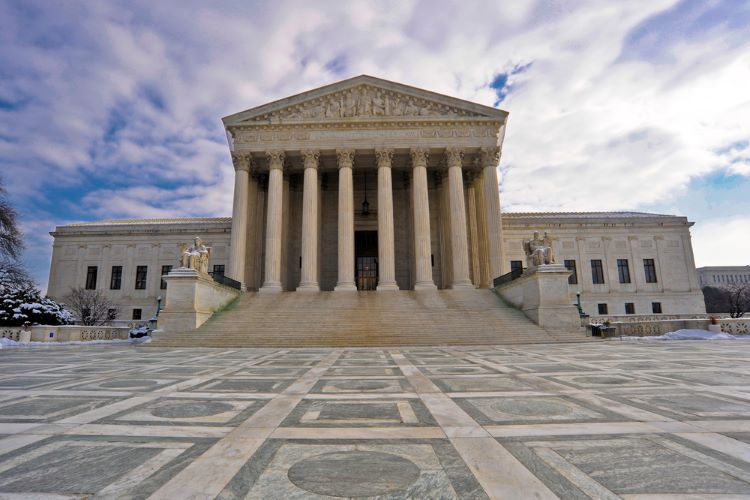Trump's 'extreme vetting' plan for immigrants is likely constitutional, law prof says

Donald Trump. Photo by a katz / Shutterstock.com
Donald Trump’s plan for “extreme vetting” of would-be immigrants may be difficult to implement, but it is likely constitutional, a law professor says in an op-ed.
Writing for the Washington Post, George Washington University law professor Jonathan Turley says this is one occasion when Trump may have the law on his side. “As a general proposition, a litmus test for new immigrants isn’t unconstitutional or even unprecedented,” Turley writes.
Trump said on Monday he wants to block immigrants with “hostile attitudes towards our country” as well as those “who believe that Sharia law should supplant American law,” the Washington Post reported in a separate story.
“Those who do not believe in our Constitution, or who support bigotry and hatred, will not be admitted for immigration into the country,” Trump said.
That kind of ideological litmus test differs from Trump’s previous proposal to ban Muslim immigration, Turley says. Ideological screening occurred during the Cold War when the 1940 Alien Registration Act sought to bar communists and anarchists from entering the United States.
If Trump implemented his plan through legislative action, it would be “unassailable,” Turley says. And if he tried to implement it through unilateral executive action, there would be precedent in Obama’s plan to defer deportations, which led to a 4-4 U.S. Supreme Court deadlock, Turley says.
University of California at Los Angeles law professor Hiroshi Motomura also referred to the Cold War law, but he said a litmus test that goes beyond organizational affiliations leads to questions about implementation, SPCR.org reports. Local officials would have the power to determine values and respect for the United States, and “decisions are likely to be made on these subjective prejudices,” Motomura said.
Hina Shamsi, the director of the National Security Project at the American Civil Liberties Union, sees some constitutional issues with Trump’s proposal. Inside Higher Ed has Shamsi’s comments. “To the extent these vague proposals are another way to exclude Muslims, we think they are unconstitutional,” Shamsi said.
“These proposals raise significant legal, policy and practical concerns,” Shamsi added. “They raise First Amendment concerns, to the extent that they seek to exclude people based on their religious viewpoint. They also raise equal protection and due process concerns.”



